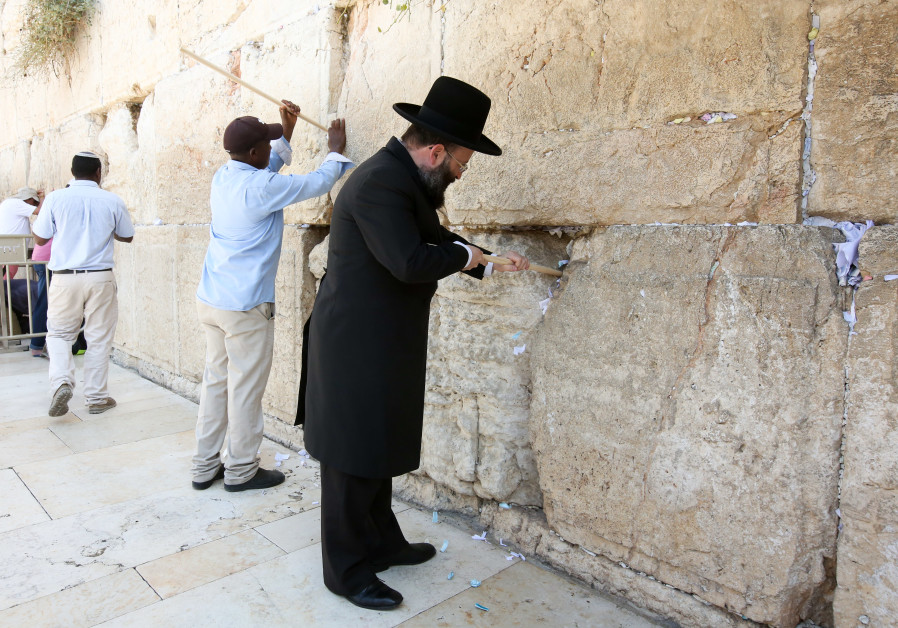 Wszystkie winy Izraela
Wszystkie winy Izraela
Andrzej Koraszewski
 Od wielu lat nosiłem się z zamiarem napisania książki, nie o Izraelu, a o stosunku świata do Izraela. Dlaczego ten maleńki kraj budzi tyle uwagi i tyle emocji, dlaczego „krytyka” Izraela tak doskonale wypiera krytykę łamania praw człowieka na świecie, dlaczego analiza tej „krytyki” pokazuje jak często jest ona zwyczajną kontynuacją długiej tradycji antysemityzmu?
Od wielu lat nosiłem się z zamiarem napisania książki, nie o Izraelu, a o stosunku świata do Izraela. Dlaczego ten maleńki kraj budzi tyle uwagi i tyle emocji, dlaczego „krytyka” Izraela tak doskonale wypiera krytykę łamania praw człowieka na świecie, dlaczego analiza tej „krytyki” pokazuje jak często jest ona zwyczajną kontynuacją długiej tradycji antysemityzmu?
O tym stosunku świata do Izraela w ciągu ostatnich dziesięcioleci napisałem kilkaset artykułów, ta książka powstała jednak przypadkiem jako efekt śledzenia blogu Agnieszki Zagner „Orient Express”. Formuła listów pozwalała przedstawić te problemy w bardziej osobisty i bardziej przystępny sposób.
(Książkę można już kupować w księgarni Wydawnictwa Błękitna Kropka, niebawem będzie dostępna również w innych miejscach.)
Antysyjonizm to wynalazek Moskwy po klęsce arabskich sojuszników ZSRR w 1967 roku; antysyjonizm to również główny filar islamizmu, nowej totalitarnej ideologii zmierzającej do podboju świata. Dlatego w tej książce czytelnik znajdzie nie tylko krytyczny ogląd stosunku zachodniego świata do Izraela, ale również głosy muzułmańskich dysydentów, widzących jak bardzo antyjudaistyczna obsesja blokuje możliwość wyjścia muzułmańskiego świata z błędnego koła cywilizacyjnego zacofania.
Dlaczego sprawa stosunku do Izraela jest dziś papierkiem lakmusowym pokazującym stosunek do kwestii praw człowieka, wojny, islamu, demokracji? Dlaczego Organizacja Narodów Zjednoczonych wydała więcej rezolucji potępiających Izrael niż wszystkie inne kraje łącznie? Dlaczego dopiero Jan Paweł II uznał, że Watykan jednak powinien uznać, że Izrael istnieje, dlaczego Ameryka do dziś nie pozwala, żeby ludzie urodzeni w Jerozolimie mieli w paszporcie podaną nazwę kraju – Izrael, dlaczego świat konsekwentnie żąda proporcjonalności – ma ginąć tyle samo Żydów, ilu ludzi, którzy próbują ich zabić? Dlaczego zabicie izraelskiego dziecka nie jest w oczach zachodniej prasy aktem terrorystycznym? Dlaczego dziennikarz BBC i pracownica ONZ rozpowszechniają zdjęcia dzieci zabitych w Syrii jako zdjęcia ofiar izraelskich?
Odpowiedzi na te pytania nie są łatwe. Nie jest również prawdą, że ta książka na te wszystkie pytania odpowiada.
Po jej napisaniu z ogromnym poczuciem niepewności wysłałem maszynopis do kilku osób. Mieszkający w Egipcie polski muzułmanin, dziennikarz i pisarz, Piotr Ibrahim Kalwas napisał:
Przeczytałem. Książka znakomita. Oj, będą na Pana niektórzy nieźle pomstować 🙂 Czytałem z ogromnym zainteresowaniem, momentami pesymistyczny obraz świata Pan przedstawia, ale w większości przypadków zgadzam się z Panem. Przedstawia Pan bez ogródek obraz współczesnego mainstreamowego świata islamu, to się nie będzie podobać tym “poprawnym”, którzy zazwyczaj tego świata nie znają, albo go idealizują. Obraz antysemityzmu arabskiego jest dokładnie taki jak Pan pisze. Ja to dobrze znam, bo ja w świecie arabskim od siedmiu lat mieszkam i go badam. Dobrze, że pisze Pan cały czas o muzułmanach i muzułmankach-liberałach i demokratach, muzułmanach otwartych, oświeconych, ich jest mało, ale cały czas więcej. To są siły, które bezwzględnie trzeba wspierać, a wolny świat tego nie robi. To są ludzie na pierwszej linii frontu walki z islamizmem, tradycjonalizmem, fundamentalizmem i – tak, tak – samym islamem jako takim, tym islamem zaskorupiałym, zastygłym, archaicznym, niszczącym. Niszczącym przede wszystkim swoich wyznawców. Książka bardzo potrzebna i bardzo cieszę się, że ukaże się na rynku.
Wysłałem również maszynopis do profesora Stanisława Obirka, który odpisał już w formie recenzji dla wydawcy:
Koraszewski nie jest publicystą wdającym się w dziennikarskie utarczki. Jest moralistą, któremu zdarza się popadać w ponury i pesymistyczny ton. Można się z nim nie zgadzać, można mieć do niego pretensję, że się czepia nadmiernie, że przesadza. Ale to nie wystarcza by odrzucić jego przenikliwe i oparte na żmudnych lekturach tezy. Obawiam się, że ma rację gdy pisze: „Salonowy lekko w antysyjonizm udrapowany antysemityzm udziela coraz więcej przyzwolenia temu antysemityzmowi, który nie owija już niczego w bawełnę. Tysiące drobnych wydarzeń pokazują jak wzbierające strumienie zaczynają się zlewać w potężną rzekę”. To jest również powód by „Wszystkie winy Izraela” nie tylko przeczytać, ale i głęboko przemyśleć. Ta książka nie tylko prowokuje do myślenia, ona zmienia nasze spojrzenie na współczesny świat.
Mieszkający w Paryżu dziennikarz, Ludwik Lewin napisał krótko:
Wyśmienite, błyskotliwe, potrzebne, nawet jeśli pozostanie głosem wołającego na puszczy. Może dlatego, że do spraw Izraela mnie nie trzeba przekonywać, szczególnie ciekawe wydały mi się rozważania filozoficzne.
Publicystka „Gazety Wyborczej” Teresa Bogucka:
Przeczytałam jednym tchem. Dobrze, że się ukaże w formie książkowej.
Te pozytywne głosy cieszą, albo raczej łagodzą niepokój, przed oddaniem książki w ręce czytelników.
Kończąc tę książkę pisałem m.in.:
„Siedzę w wygodnym fotelu, przeglądając wiadomości ze świata. Moje sądy nie są zakorzenione w religii, ale są tysięcznymi nićmi powiązane z ludźmi, którzy porządkowali swój obraz świata, próbując po swojemu zrozumieć słowa świętych tekstów. Niektórzy bez wielkiej filozofii mówili, że warto być przyzwoitym.”
Nie twierdzę, że mam we wszystkim rację, próbuję w tej książce przedstawić moje argumenty oparte na znanych mi faktach. Centralnym problemem jest zagrożenie Izraela. Wielu ludzi twierdzi, że jest ono wyolbrzymiane przez izraelskich polityków i dziennikarzy. Wymaga ono uważnego zanalizowania. Mój pierwszy list do Pani Z. zaczyna się od słów:
Mam dla Pani pewną propozycję: Zagrożenie. Niech go Pani nie traktuje w odniesieniu do siebie osobiście. Wiem, że jest Pani bezpieczna, lubi Pani swój adres i nie zamierza go zmieniać. Proponuję Pani zagrożenie jako pewne pojęcie, jako część świadomości zagrożonych i grożących. Namawiam Panią na przyjrzenie się pojęciu „zagrożenie”.
Jest to oczywiście trawestacja początku jednego z listów do Pani Z. Kazimierza Brandysa. Książka Brandysa jest w tych rozważaniach silnie obecna, zaś, jak pisał jeden z pierwszych czytelników tej książki „Adresatka tych „Innych listów do innej Pani Z.” wydaje się być zaledwie pretekstem do podjęcia wielu pytań fundamentalnych dla dzisiejszego świata”.
Wydaną nakładem wydawnictwa „Błękitna kropka” książkę oddaję teraz w Wasze ręce. Mam nadzieję, że ci z Was, którzy ją kupią, przeczytają i uznają, że jest tego warta, zostaną również jej ambasadorami. Bez Waszej pomocy bowiem ta książka wpadnie w studnię, z Waszą pomocą może jednak dotrzeć również do tych, dla których okaże się inspiracją do dalszych poszukiwań i krytycznego sprawdzania jej treści.
twoje uwagi, linki, wlasne artykuly, lub wiadomosci przeslij do: webmaster@reunion68.com




 Military Tech
Military Tech